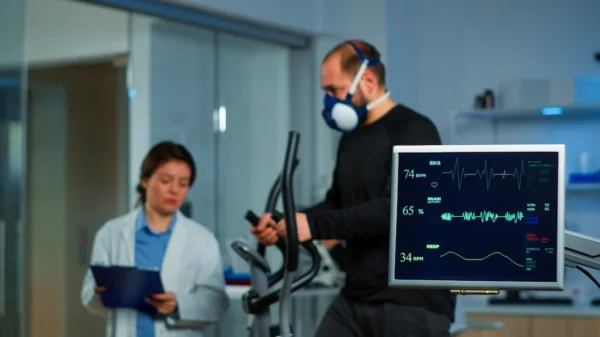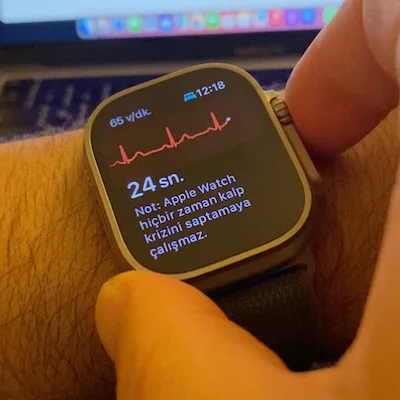Heart rhythm problems may not always manifest during examination. Complaints such as palpitations, fainting, or dizziness that develop momentarily during the day can be evaluated in detail with the Holter monitor test. This test objectively reveals how your heart behaves under daily living conditions.
- What Is a Holter Monitor?
- When Is a Holter Monitor Needed?
- How Is a Holter Monitor Attached?
- What Should You Pay Attention to During Holter Monitoring?
- What Do Holter Monitor Results Mean?
- Is Holter Monitoring Safe? Can It Be Applied to Everyone?
- What Arrhythmias Are Detected with Holter Monitoring?
- Conclusion
What Is a Holter Monitor?
A Holter monitor is a portable ECG device that monitors heart rhythm for extended periods. While a classic ECG only shows rhythm for a few seconds, a Holter monitor records how your heart works throughout the entire day. This feature helps identify the cause of complaints such as palpitations, dizziness, or fainting in your daily life. It is an effective diagnostic tool especially for irregular and intermittent arrhythmias. The Holter monitor usually remains attached for 24 hours, but the duration can be extended in some cases.
When Is a Holter Monitor Needed?
Holter monitoring is used to seek answers to questions related to heart rhythm. If you have symptoms such as palpitations, dizziness, fainting, or shortness of breath, your doctor may recommend this device. Very slow or fast heart rate can also be detected with Holter monitoring. Additionally, Holter monitoring can be performed to monitor the effect of certain heart medications or for pacemaker control purposes.
How Is a Holter Monitor Attached?
Holter monitor attachment is a quick and painless procedure. Electrodes attached to your chest transmit the heart’s electrical signals to a device. This device is usually attached to your waist or shoulder. You can continue your daily life normally during the time it remains attached.
What Should You Pay Attention to During Holter Monitoring?
You can continue your daily life while wearing the Holter monitor, but you need to pay attention to some points. It is important that the device does not get wet, cables are not pulled, and the recording device is not removed. Certain rules must be followed for the device to collect accurate data.
- Do not remove or turn off the device.
- Avoid taking showers.
- Stay away from magnetic fields such as magnets, electric blankets, microwaves.
- Note the times when you feel symptoms (along with the time).
- Try not to lie on the device while sleeping.
What Do Holter Monitor Results Mean?
Holter monitor results show how your heart worked during the recorded period. Data obtained from the device can clarify problems such as arrhythmias, extra beats, and pauses. Your doctor analyzes how your heart behaved during moments corresponding to your complaints.
Is Holter Monitoring Safe? Can It Be Applied to Everyone?
Holter monitoring is a non-invasive, completely safe test. No intervention is made to your body and there is no risk of side effects. It can generally be applied to people of all ages. Only skin sensitivity may occur at electrode sites. The Holter monitor does not harm your body, but you need to use the device carefully during the recording period.
What Arrhythmias Are Detected with Holter Monitoring?
Holter monitoring helps identify many arrhythmias. Some may be life-threatening while others may be more benign. Holter monitoring reveals this difference.
- Supraventricular tachycardia (SVT)
- Atrial fibrillation (AF)
- Ventricular tachycardia
- Premature atrial or ventricular beats
- Sinus pauses
- Heart block (AV block)
Conclusion
The Holter monitor test is a very important test for investigating the source of complaints such as palpitations or fainting. Rhythm problems that affect your daily life but cannot be captured with ECG are revealed thanks to Holter monitoring. The procedure is simple, safe, and painless.
Reference: Holter Monitor






